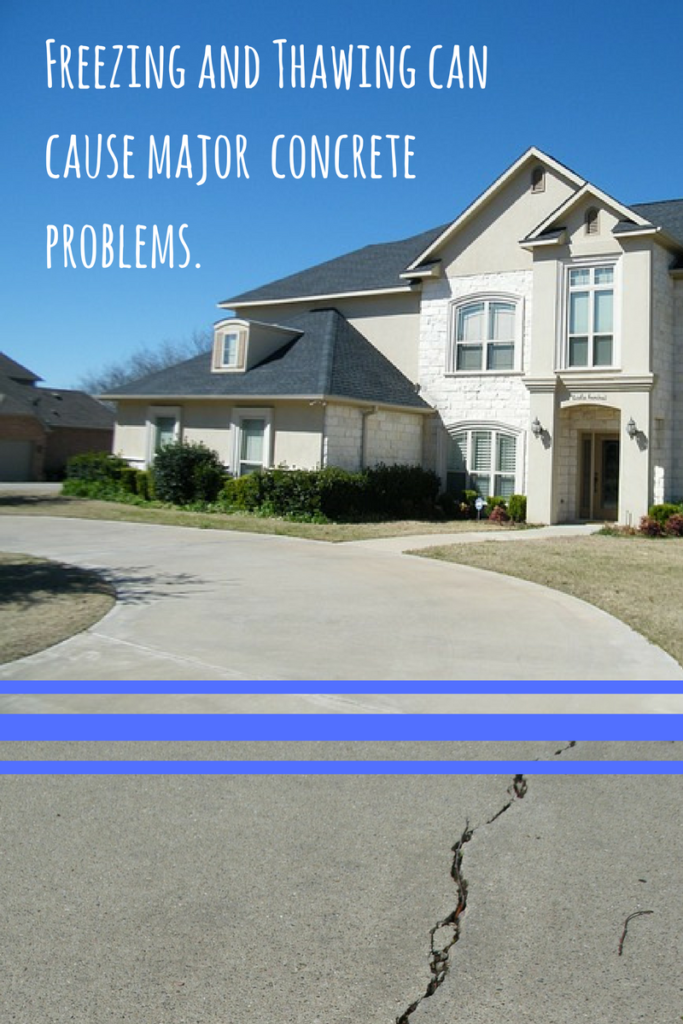Concrete Cracks: Nuisance or Bigger Problem?
It’s very common for your property to develop concrete cracks, scaling, pitting and crazing. All concrete has the tendency to crack, but how do you know if the cracks in your concrete are a major problem or just a nuisance?

Joints in your driveway or sidewalk are cracks that are meant to be there. The only problem is that this can create a weakness in the concrete. If shrinkage occurs it can crack that control joint versus other places in the slab. This is by design.
As a Homeowner can I do Anything?
With winter coming, this is when you really do need to be concerned. That is because one of the largest problems that concrete faces is the freeze and thaw of the colder seasons, and here in South Dakota and Wyoming we sure see our share of that. Concrete freezes at 18 degrees and then will start to thaw at 35 degrees. Extreme heat can also causes problems.
As a homeowner you can do things to prevent or at least ward off problems with your concrete. We recommend the use of sand versus salt when it comes to de-icing your driveway. Salt is known to breakdown concrete. You can apply a yearly sealer to protect your concrete as well. Look for a high quality silane water repellent or siloxane to seal your driveway with. Make sure to ask questions about the product you are considering prior to purchase. Beyond this you may want to involve a contractor like Rapid Foundation Repair to assist with concrete cracks. Call us for a free estimate on concrete repair.
